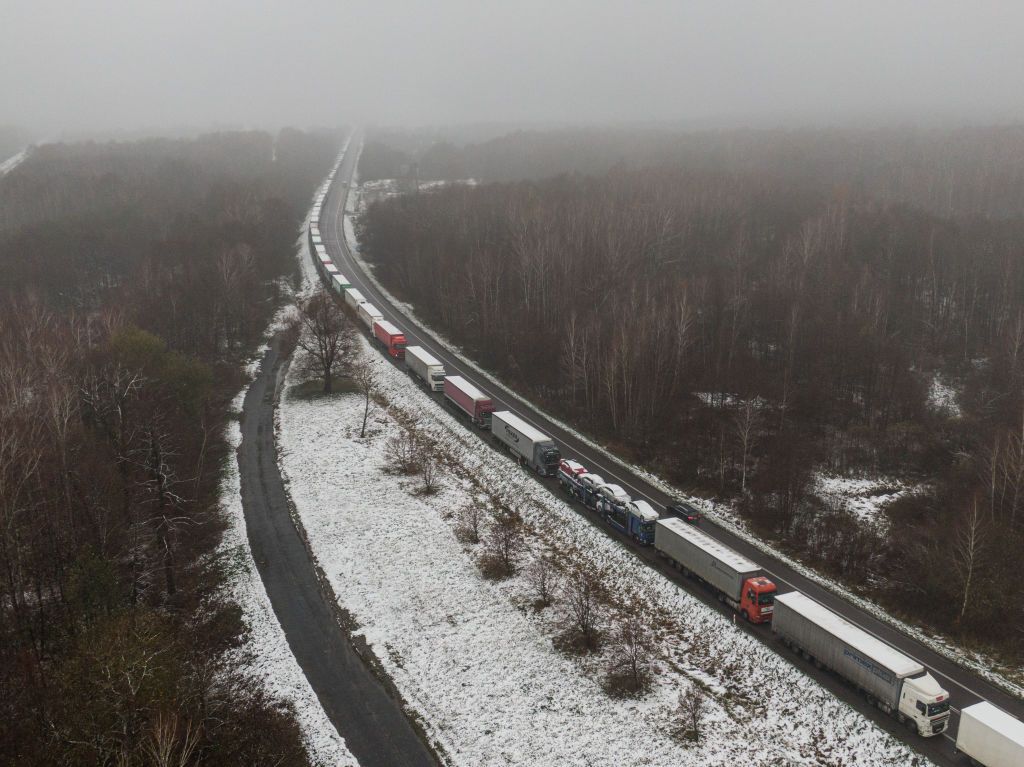Poland proposes solution to Ukraine border crisis

Poland's Infrastructure Minister Andrzej Adamczyk sent a proposal that Ukraine exempt trucks returning to the EU without cargo from being registered in its electronic queue system, the Polish government said on Nov. 27.
As well as protesting the liberalization of EU transport rules for Ukrainian trucks, Polish truckers are against Ukraine's use of an electronic queue system, according to the Infrastructure Ministry.
This system leads to longer lines for EU-registered vehicles and reduces the competitiveness of transport companies, the ministry claimed.
A solution would be to exempt these vehicles, if they do not have cargo, from having to register in the electronic queue system at two border crossings, the ministry said.
"The minister hopes that the Council of Ministers of Ukraine will accept this request as it would benefit the well-being of Ukrainian and Polish drivers, carriers, and entrepreneurs from other sectors of the economy."
Adamczyk also requested that the European Commissioner for Transport Adina Valean establish a joint committee to analyze the impact the liberalization of EU transport rules for Ukrainian trucks has had on the European transport market.
"The above actions are a continuation of the efforts of the Ministry of Infrastructure, made since the beginning of the protest, to remove its causes, which lie with Ukraine and the European Union," the Infrastructure Ministry claimed.
According to EU rules, Ukrainian trucks do not require permits until June 30, 2024, after the EU and Ukraine signed an agreement in June 2022 to liberalize transport rules.
Polish truckers claim that the lack of entry permits for Ukrainian trucks is hurting business for Polish drivers and blocking three border crossing points since Nov. 6.
As a result of the blockade, around 2,100 vehicles are stuck, unable to get into Ukraine as of Nov. 26, Ukraine's Infrastructure Ministry said.
The flow of traffic at Dorohusk-Yahodyn, Ukraine's largest cargo crossing, is usually 680 trucks per day. It is now down to a few dozen every 24 hours, according to the ministry.
Negotiations have so far yet to bring an end to the situation.













